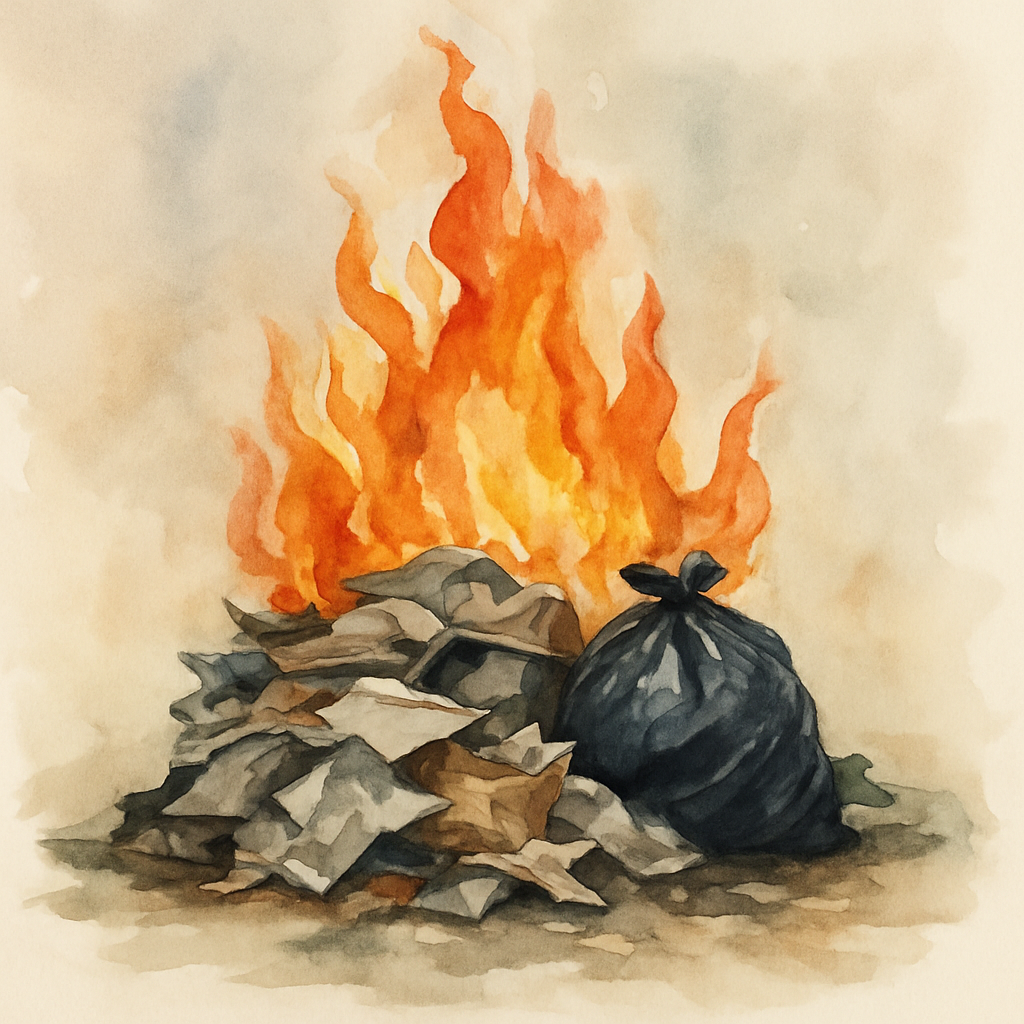Author’s Note:
Sometimes, it’s tempting to pull the rabbit from the hat and let the whole world watch the narrative unravel.
To say, “Here’s what really happened.”
To set fire to the false accusations—
and watch her abuse power and then scramble.
But I didn’t.
Not because I couldn’t.
Because I wouldn’t.
Checkmate was an option.
But I chose mercy instead.
Some play checkers.
The smart ones play with restraint.
I was thinking about my first big betrayal the other day.
Not the obvious kind—
But the kind that shows up in pearls and a polished smile.
The kind that plays dress-up as integrity.
The kind that doesn’t stab you in the back…
It hands you the knife,
Points to your chest,
And calls the crowd to watch you bleed.
That’s the kind that leaves the deepest cuts.
The ones that don’t gush blood all at once.
They just…
stay open.
Forever stinging,
long after they’ve dried.
The first time it happened to me, I was in high school.
She was a friend with strict parents,
and we had a Halloween party at work.
She asked if she could sleep over. I said yes—
Excited because she was one of my best friends, so I thought.
We were underage. The rules were clear.
No alcohol.
But we made plans anyway.
We found someone to bring beer.
We schemed like rebels,
and when the time came,
I stood under a streetlight, in the dark (literally and figuratively)
and chugged a warm Bud Light in the parking lot.
It wasn’t even good.
It was gritty and bitter and burned going down.
She stood beside me but never lifted the can.
She watched me drink it.
Then pocketed that moment like an exhibit waiting for court.
Later, when I grabbed my keys to leave,
she looked at me—loud and holy—and announced:
“I’m not getting in the car with someone who’s been drinking.”
In front of everyone.
Like a girl on a pulpit, saving her own soul.
Like she didn’t come out to that parking lot too.
Like she hadn’t planned the whole thing with me.
Like she wasn’t about to stay the night with a man twice her age.
I didn’t know it yet,
but I had just become her scapegoat.
My boss pulled me aside,
told me he should fire me, but he didn’t.
But he said I couldn’t drive home.
Which meant waking up my parents,
admitting I drank,
and unraveling trust.
But someone I knew—someone with clear eyes—
offered to drive me.
And when we got outside,
he just looked at me and said,
“Felecia, I know what kind of girl she is.
And I know you only had one drink.
You’re fine. I just wanted to give you a way out.”
He gave me back my dignity.
And I drove myself home.
The next day I wanted to go to war.
I wanted to find her in the hallway and light her up.
And I tried.
But a teacher stepped in.
And I told my mom.
And I wanted—desperately—to tell her parents too.
To rip off the mask.
Unravel her narrative of blame
Unravel her narrative
The one that she spun
Avoiding the mirror of shame
The one who rightly reflects the blame.
I wanted to say, “She didn’t sleep at my house.
She slept with a grown man.
And she used me as cover.”
But I didn’t.
And I still don’t know why.
Because the truth is:
you can burn someone’s life down with the truth.
But if you torch your own peace in the process—
was it worth it?
Maybe I could’ve humiliated her.
Maybe I should have.
But that kind of revenge costs something.
And I don’t pay for peace with my character.
Sometimes you’ve got a match in your hand
and a bonfire of garbage behind you.
But lighting it would just make the whole street smell.
So you drop the match.
And walk.
Years later, I realize:
I’m still that girl.
Imperfect.
Yes.
But loyal to the core to the vault I vow to be.
And that’s what silence proves.
It says: I’m not afraid to leave your truth standing next to mine.
Because that night?
I chugged one beer.
She slept with a man twice her age who had a girlfriend.
(The girlfriend, by the way, didn’t leave him over her.
She left him because of another girl he cheated with.)
So tell me—
Which one of us woke up the next day still feeling whole?
She put on a show for our boss,
but he found out the next day what really happened.
That his manager slept with a minor employee.
Her reputation?
Scorched earth.
And she couldn’t even blame me.
That’s the thing about dignity:
it isn’t just about who you are in the dark.
It’s about who you refuse to become
when someone hands you the lighter
and begs you to burn.
When you set trash on fire,
everyone smells it,
and they know where it came from.
But if you vault it—
and let it rot quietly—
someday it might just become compost.
Will they think they won?
Maybe. For a minute.
But when they go home and face the mirror,
they have to live with what they are.
And what they are
isn’t brave.
It’s petty.
And the woman they tried to shame?
She looks in the mirror and sees silence.
Powerful, screaming silence—
the kind that doesn’t owe anyone a headline,
but could still write one if she wanted to.
This story stayed in my back pocket.
I never needed to use it.
But now?
Now, it reminds me:
I’ve walked away twice
when I could’ve blown the whole thing up.
I didn’t.
Not because I couldn’t.
Because I wouldn’t.
That’s not weakness.
That’s restraint.
You blow me up?
and I walk away anyway.
And that trash?
Still vaulted.
Still untouched.
But it’s composting beautifully.

Leave a Reply